Best PHP Libraries to Buy in October 2025
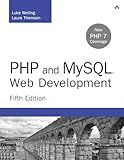
PHP and MySQL Web Development (Developer's Library)


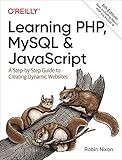
Learning PHP, MySQL & JavaScript: A Step-by-Step Guide to Creating Dynamic Websites (Learning PHP, MYSQL, Javascript, CSS & HTML5)


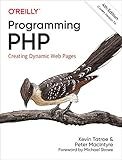
Programming PHP: Creating Dynamic Web Pages


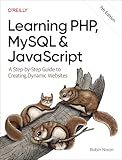
Learning PHP, MySQL & JavaScript: A Step-by-Step Guide to Creating Dynamic Websites


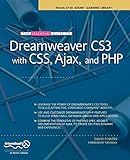
The Essential Guide to Dreamweaver CS3 with CSS, Ajax, and PHP (Friends of Ed Adobe Learning Library)


To use external libraries or packages in PHP, you need to follow a few steps:
- Download or install the desired library or package: Search for the library or package you want to use and download it from the official website or from a package manager like Composer. Make sure you download the appropriate version compatible with your PHP version.
- Place the library files in your project directory: Extract the downloaded files and place them in a directory within your project. It is recommended to create a dedicated folder for external libraries, such as "libraries" or "vendor".
- Include or autoload the library files: In your PHP script, you need to include or autoload the library files to gain access to their functionality. Depending on the library, you may need to include a specific file, multiple files, or use an autoloader provided by the library. Include Example: include 'path/to/library_file.php'; Autoload Example (using Composer): require_once 'vendor/autoload.php';
- Use the library functions or objects: Once the library files are successfully included or autoloaded, you can use the functions, classes, or objects provided by the library in your PHP code. Refer to the library's documentation to understand its usage and available features. Example: $result = LibraryClass::someMethod();
- Test and verify: It is important to test and verify that the library is working correctly in your application. Execute your PHP script, and if any errors occur, double-check the library's installation, including file paths and version compatibility.
Remember to keep your libraries up to date by periodically checking for updates and following their official documentation. Using external libraries can significantly enhance your PHP applications by providing ready-made solutions, functionality, and efficiencies.
How to install external libraries or packages in PHP?
There are multiple ways to install external libraries or packages in PHP, but the most common methods are:
- Using Composer: a. Install Composer if you don't have it already. Instructions can be found at https://getcomposer.org/download/. b. Create a new composer.json file in your project directory and specify the required packages and their versions. c. Run composer install in the project directory. Composer will automatically download and install the specified packages and their dependencies.
- Manually downloading and including the package: a. Find the package you want to install and download its source code or pre-built release from the project's website or a repository like GitHub. b. Extract the downloaded package files to a directory within your project, preferably in a dedicated "vendor" folder. c. In your PHP files, include the necessary files from the package using the require or include functions.
Note: Composer is widely used and recommended for managing packages and their dependencies in PHP projects.
In both cases, don't forget to refer to the documentation of the specific library or package for any additional installation instructions or steps required for proper usage.
How to test and debug code that relies on external libraries or packages in PHP?
Testing and debugging code that relies on external libraries or packages in PHP can be challenging. However, you can follow a few steps to effectively test and debug such code:
- Install and configure the required libraries: Ensure that you have the necessary external libraries or packages installed and configured correctly in your project. This may involve using package managers like Composer to manage dependencies.
- Unit testing: Write unit tests for your code using a PHP testing framework, such as PHPUnit. Focus on testing your code's behavior and logic, not the external libraries or packages. Use mock objects or stubs to simulate the behavior of the external dependencies.
- Isolate external dependencies: If possible, isolate the external dependencies using dependency injection or by encapsulating them within a separate class or wrapper. This allows you to replace or mock the external dependencies during testing.
- Use PHPUnit's mocking capabilities: PHPUnit provides powerful mocking capabilities to simulate interactions with external dependencies. You can use these capabilities to create mock objects or stubs that mimic the behavior of the external libraries or packages. This allows you to test your code's behavior without relying on the actual external dependencies.
- Debugging with breakpoints: Set breakpoints in your code to halt the execution at specific points and inspect the variables and state of your program. Use a debugger like Xdebug to facilitate this process. This allows you to step through the code and identify any issues or unexpected behavior caused by the external dependencies.
- Logging and error handling: Implement logging and error handling mechanisms within your code to capture and report any issues or errors that may occur due to external dependencies. This helps in identifying and debugging problems related to the external libraries or packages.
- Engage with the community: If you encounter issues or bugs related to the external libraries or packages, reach out to the respective community or forum. Many libraries have active communities that can help you troubleshoot and resolve issues.
By following these steps, you can effectively test and debug code that relies on external libraries or packages in PHP.
How to handle conflicts between versions of external libraries or packages in PHP?
Handling conflicts between versions of external libraries or packages in PHP can be challenging but there are a few strategies that can help:
- Use Dependency Management Tools: Utilize package managers like Composer to manage dependencies and handle version conflicts automatically. Composer uses semantic versioning to resolve and install compatible versions of packages. It also allows specifying version constraints and automatically updates packages to compatible versions.
- Update and Test Regularly: Keep your dependencies up to date and regularly test your codebase with updated versions of the packages. This helps identify and resolve conflicts before they become significant issues.
- Use Version Constraints: Specify version constraints in your composer.json file or package manager configuration to restrict compatible versions. These constraints can allow a range of versions, for example, "^1.0" to allow any version in the 1.x range, or "~1.2" to allow any version from 1.2 to 1.9. This ensures that only compatible versions are installed.
- Isolate Dependencies: Use tools like Docker or virtual environments to isolate dependencies for different projects. This ensures that different projects can use different versions of libraries without affecting each other.
- Update or Replace Conflicting Libraries: If a conflict arises due to a specific library, check if an updated version is available that resolves the conflict. If not, evaluate alternative libraries that provide similar functionality and are compatible with your codebase.
- Collaborate with the Community: If you encounter conflicts with a library or package, collaborate with its community or support channels. They may provide guidance or offer solutions to mitigate the conflict.
- Maintain Documentation: Document the versions of external libraries or packages used in your project and any known conflicts or compatibility issues. This helps team members and newcomers to your project understand the limitations and potential conflicts.
By following these strategies, you can effectively manage conflicts between versions of external libraries or packages in PHP and maintain a stable and functional codebase.
What security considerations should be taken when using external libraries or packages in PHP?
When using external libraries or packages in PHP, the following security considerations should be taken:
- Source and reputation: Only use libraries or packages from reputable sources that have a good track record of security and reliability. Check for community reviews, ratings, and active development.
- Current and maintained: Ensure that the library or package is actively maintained and regularly updated. Outdated or unmaintained libraries may have known vulnerabilities that can be exploited.
- Code auditing: Conduct a code audit of the library or package to look for potential security vulnerabilities. Check for possible injection attacks, insecure data handling, or other security loopholes.
- Dependency management: Keep track of the dependencies of the library or package. Ensure that all dependencies are up to date and do not have any known vulnerabilities. Regularly check for updates and security patches.
- Secure communication: If the library or package communicates with external services or APIs, ensure that the communication is done securely using encryption (such as HTTPS) and proper authentication. Preventing man-in-the-middle attacks is crucial.
- Input validation and filtering: Validate and filter all inputs passed to the library or package to prevent common security vulnerabilities like SQL injection, cross-site scripting (XSS), or command injection. Always assume that inputs are malicious until proven otherwise.
- Code review and testing: Thoroughly review the library or package's documentation, reviews, bug reports, and codebase to identify any potential security issues. Additionally, perform extensive testing, including boundary and edge case testing, to ensure the security and reliability of the library or package.
- Regular updates and vulnerability monitoring: Stay updated with the latest security vulnerabilities and releases of the libraries or packages used. Subscribe to security mailing lists, follow security blogs, or use vulnerability monitoring tools to receive alerts and updates for any discovered vulnerabilities.
- Least privilege principle: Limit the privileges of the library or package within your application. Grant only the necessary permissions required for its functionality. For example, avoid using libraries with excessive file system access if it's not required.
- Trust but verify: While using external libraries or packages can be beneficial, always remember that someone else's code is being added to your codebase. Trust but verify their functionality and security.
